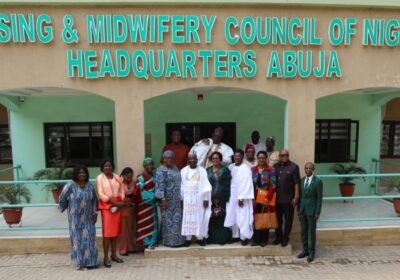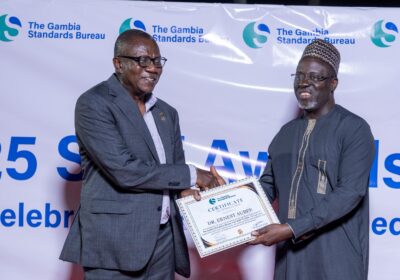GENDER EQUALITY: NIGERIAN WOMEN DEMAND 74 RESERVED SEATS IN NATIONAL ASSEMBLY.
By Raymond Enoch
In a powerful show of unity and determination, Nigerian women from across the country converged at the National Assembly for a historic public hearing, demanding legislative support for the #SpecialSeatsBill — a proposed constitutional amendment that seeks to reserve 74 seats exclusively for women in the federal legislature.
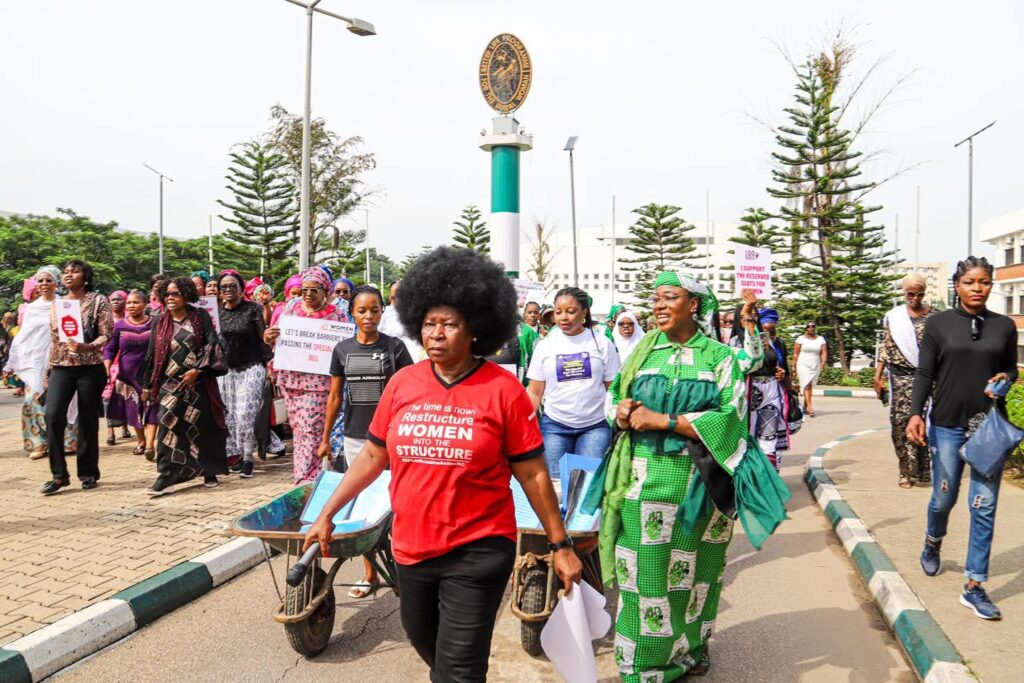
Among those who stood in solidarity was Beatrice Eyong, UN Women Country Representative to Nigeria and ECOWAS, who joined advocates and civil society groups to support what is being hailed as a critical moment in Nigeria’s democratic evolution. The bill proposes 37 seats in the Senate and 37 in the House of Representatives be set aside for women, in an effort to redress decades of political marginalization.
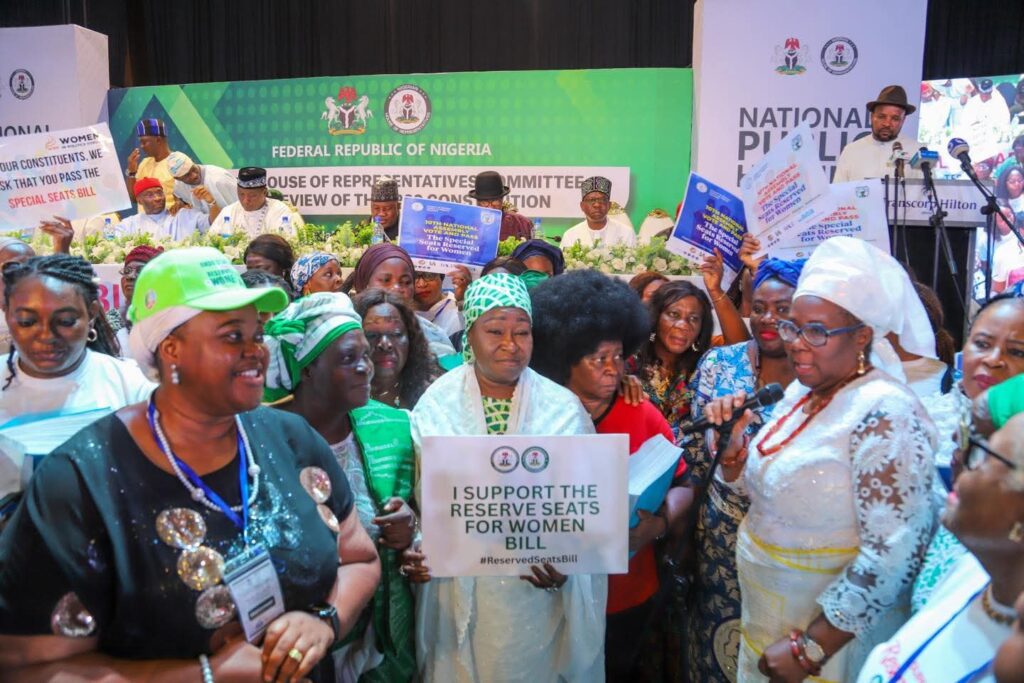
Currently, women make up less than 5 percent of Nigeria’s National Assembly, placing the country among the lowest globally in terms of female political representation. The #SpecialSeatsBill, supporters argue, is a long-overdue corrective measure to ensure Nigerian women have a voice in shaping the nation’s laws and future.
“This is not about asking for charity,” said one of the leading female advocates present at the hearing. “It is about correcting a structural imbalance and ensuring that our democracy works for everyone.”
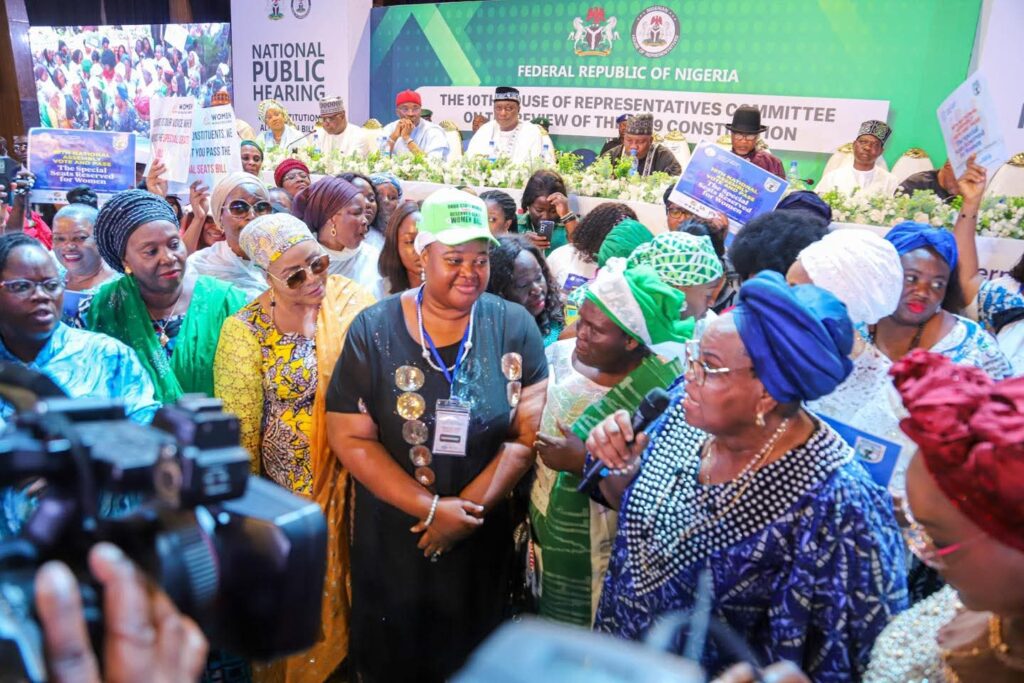
Eyong, addressing the gathering, emphasized that inclusive governance is a cornerstone of sustainable development. She reminded lawmakers and attendees that Nigeria is a signatory to several international agreements — including the Convention on the Elimination of All Forms of Discrimination Against Women (CEDAW) — which obligate it to take affirmative steps to promote women’s participation in politics.
Eyong noted that gender equality in political spaces is not just a moral imperative but a democratic necessity. “A truly representative democracy must reflect the diversity of its people,” she said. “The Special Seats Bill is a critical opportunity for Nigeria to align its political structure with global best practices.”
Despite growing support for the bill, resistance remains in certain quarters of the political establishment. Critics argue that representation should be based on merit and electoral competition, not quotas. However, legal and gender experts point out that temporary special measures are internationally recognized mechanisms for achieving balanced representation, particularly in societies with deeply rooted gender inequalities.
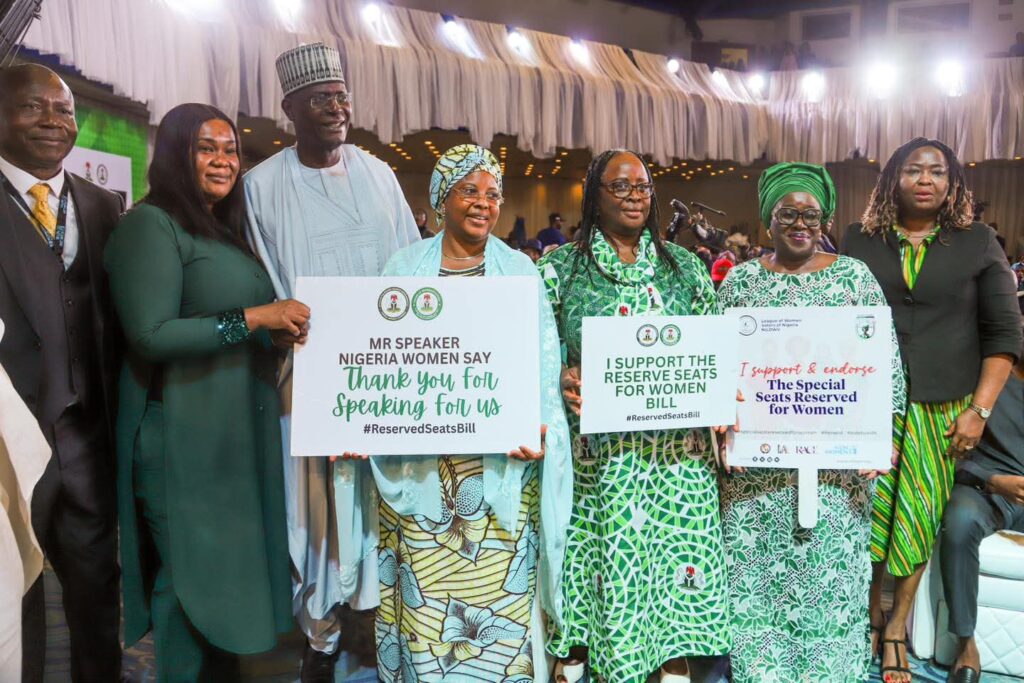
The atmosphere outside the hearing was electric, with banners, placards, and chants from women’s groups who had traveled from all 36 states. Hashtags such as #SpecialSeatsBill and #SheDeservesASpot trended online, capturing the attention of young people and political watchers nationwide. The sense of urgency was clear — the time for rhetorical support has passed, and concrete legislative action is now required.
The bill, if passed, could take effect in the next electoral cycle, potentially reshaping the political landscape and inspiring a new generation of female leaders. Advocates insist the measure is not just about numbers, but about meaningful participation and policy influence — particularly in areas that disproportionately affect women, such as maternal health, education, economic empowerment, and protection from gender-based violence.
“This bill is about the soul of our democracy,” one lawmaker supporting the bill told this reporter. “When women win, the country wins.”
As the National Assembly deliberates on the bill in the coming weeks, all eyes will remain on the lawmakers to see whether they will rise to the occasion and make history — or preserve the status quo.





